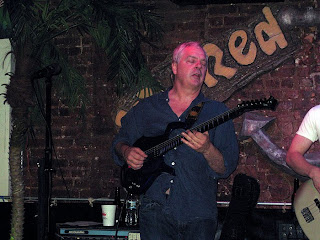 Kupala is a Ukrainian celebration of summer solstice, which also couples with a midsummer's night dream, and has its origins in the original pagan festival (Kupalo was the god of Love and Harvest). Christianity appropriated it and combined it with the Nativity of St. John the Baptist. Somehow Summer Solstice is also appropriated as a significant part of the celebration as the longest day... the ultimate triumph of light over darkness awaiting the return of increasingly dark days as the earth swings into the next arc of the orbit when night regains its ascendancy.
Kupala is a Ukrainian celebration of summer solstice, which also couples with a midsummer's night dream, and has its origins in the original pagan festival (Kupalo was the god of Love and Harvest). Christianity appropriated it and combined it with the Nativity of St. John the Baptist. Somehow Summer Solstice is also appropriated as a significant part of the celebration as the longest day... the ultimate triumph of light over darkness awaiting the return of increasingly dark days as the earth swings into the next arc of the orbit when night regains its ascendancy.At the Ukrainian Sports Center on Second Avenue in the East Village, Virlana Tkacz, Founding Director of the Yara Arts Group, created an evening of Kupala 2010, complete with entertainment, rituals, love potions, and a surprise guest. There were also two installation pieces: Infinity by Marybeth Ward, and Kupala, North Collins, NY by Andrea Wenglowskyj. It was an evening full of fun, and for me, a revelation of Ukrainian lore, which I have been investigating in preparation of creating new work.
All the women fashioned garlands that they wore for the celebration, which originally once meant the availability of the young girls for marriage. Everyone wrote a fortune that was fastened to a tree, and all were given candles.
The program began with a film Dora Was Dysfunctional by Andrea Odeznyska which was a beautiful, achingly funny account of the romantic life of a Ukrainian woman in L.A.
Cruel Love Songs were featured by Odarka Polanskyj-Stockert singing as she accompanied herself on an electric harp, supported by Redentor Jimenez on guitar. The delivery was soft and undulating, alluring and charming. "On the Night of St. John's Eve" was an evocative poem by Olena Jennings, enthusiastically received by the revelers of midsummer's night.
One of the highlights of the evening were the poems read by Bob Holman with the brilliant Bandura performer Julian Kytasty. Featured was a new poem about the Solstice, "Midsummer Night~My Heart is a Real Thing", performed by Bob Holman in association with Julian's intimate and mesmeric music. There was a casual presence in the execution that was attractive and sensitive to the moment.
A surprise celebrity was violinist Valeriy Zhmud who performed with the "technical support" of his iPod "ensemble," selections that were even more electrifying than his electrified fiddle. His work was dazzling and fearless, the music exploding from the strings with bravura and passion.
The Songs and Rituals were performed by a group, Girls, Girls, Girls, made up of Laryssa Czebiniak, Lycyna Kuncio, Olena Martynyuk, and Meredith Wright. Their singing created a sense of festivity during the candle lighting/floating ceremony and the distribution of Olesia Lew's love potion.
Closing out the program was The Debutant Hour, a girl's trio that was inventive, humorous, and lively. At the end they sang Happy Birthday to to Virlana, who is the spirit that drives and defines these wonderful events. As the audience dispersed, we each picked our fortune off of the tree. Mine was that "something interesting would happen to you under a bridge." I'm still waiting, but it clearly was more evocative than most fortune cookie messages.
As I reflect on the spirit of Kupala and my experience of cultural nuances that influence my work, I understand that the Ukrainian culture permeates the East Village, and the cultural energies of other groups intersect with the Ukrainian in forging an emerging identity that continually shifts and adjusts to the needs and vagrancies of time, place, and peoples. The Ukraine serves as the gateway to Russia from the West and the entrance to Europe from the East, assimilating the great traditions of the world into its own unique vision and art. Wandering around the Ukrainian Museum in the East Village, I began to see the Ukraine as a metaphor for humanity's struggle for freedom. I am told that the word Kozak (Cossack) came from an Arabic word that meant "free man".
The Ukrainian culture in the context of the East Village assimilates and distributes its energies into emerging identities that embrace the great traditions and cultures of the world. That may be the source of potency that makes the East Village so vibrant. It is East and West and South and North, pinpointed with an intensity that makes everyone a vital constituent in an an emerging cultural personality.



